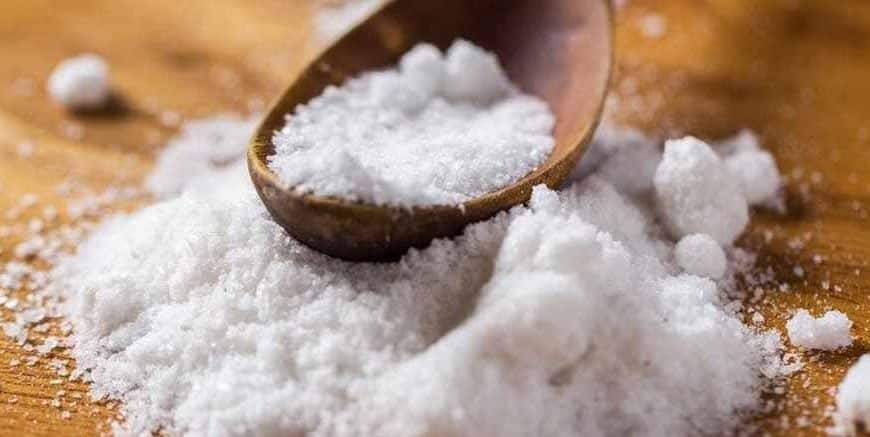Salt, a universal kitchen ingredient, has been applied without interruption to make dishes tastier and preserve them for future use. Its use can be dated back to ancient civilization, to an extent that it was being used to trade goods. But, in the past decades, issues arose as to the healthy effects it brings to the body system. This has been made possible by the current dietary practices and the interaction with high sodium content foods most often processed foods.
Like with many other nutrients, today people know not only positive aspects of using salt in food or preventing consumption of it, but also various negative consequences that may occur if a person takes salt in excess. Here the author discusses the impact of salt on our bodies going deeper into how it affects different physiological processes. Let us look at some of the positive effects of cutting down their consumption especially for persons who are prone to some diseases. Also, there will be simple and useful recommendations on how to reduce the amount of salt used in meals while preserving the taste.
Table of Content:
- Salt Impact on Health
- Health Effects of Salt
- Benefits of Reducing Salt
- Ways to Reduce Salt Intake
- Recommended Salt Intake per Day
- References
Salt Impact on Health:
Salt, or sodium chloride, plays crucial roles in our body:
- Maintaining fluid balance
- Supporting nerve function
- Aiding muscle contraction
When we consume any foods with salt, our bodies see to it that we have enough sodium chloride, and therefore we have to retain more water with an aim of trying to manage the sodium chloride balance in the body. This also has the effect of raising the volume of the fluid within us and creates additional pressure on our blood vessels to develop high blood pressure or what is fondly called hypertension.
Hypertension increases the factors or odds of having different cardiovascular problems like heart attack or stroke. It also causes kidney illnesses and enhances the probability of attaining the condition of osteoporosis.
Health Effects of Salt:
While the impact on blood pressure is well-known, excess salt intake can affect other aspects of our health:
- Cardiovascular Health:
- Kidney Function:
- Bone Health:
- Stomach Cancer:
- Water Retention:
Low salt intake also contributes to the prevention and shrinking the danger of a heart attack and a stroke. It can lead to certain diseases which affect the elasticity and flexibility of the blood vessels thereby turning them, muscles and rigid hence prone to be damaged.
This excess salt has to be eliminated from the blood, and that is another valuable function of kidneys. When the intake of salt is very high, the kidneys can be damaged and this can lead to diseases or worsen the existing ones.
Salt intake is believed to cause calcium to be flushed out from the body through urine. This over time results in the loss of bone density and therefore in the elder this leads to the development of osteoporosis.
Certain investigations point to a direct relationship between salt consumption and stomach cancer, but only in countries that rely on salt conserved meals.
Too much salt results in the water retention process, thus increases the size of the body specifically in the extremities like hands, feet, and legs.
Benefits of Reducing Salt:
Cutting down on salt intake can have numerous health benefits:
- Lower Blood Pressure:
- Decreased Risk of Cardiovascular Disease:
- Improved Kidney Function:
- Better Bone Health:
- Reduced Bloating:
- Enhanced Taste Perception:
One should also accommodate their intake of salt since a low salt intake can markedly lower blood pressure in hypertensive patients.
Here, the authors have proved about the fact that lower blood pressure will in a way reduce the number of people who are potentially prone to have heart disease and stroke.
Minimizing the intake of salty foods also helps to preserve renal functions and decrease the development of clinical renal diseases.
Reduced sodium intake may be helpful in retaining calcium in bones and, thus osteoporosis may be prevented.
It is recommended that one should try to reduce the use of salt as this will have a direct effect on reducing water retention thus eliminating development of swelling.
In the long run, the instances of cutting down in the consumption of salt are rewarded by the better capacity for perceiving the natural taste of the foods.
Ways to Reduce Salt Intake:
Reducing salt intake doesn’t mean sacrificing flavor. Here are some practical strategies:
- Read Food Labels:
- Cook at Home:
- Use Herbs and Spices:
- Gradually Reduce Salt:
- Rinse Canned Foods:
- Choose Fresh Over Processed:
- Be Mindful of Condiments:
- Avoid Salt at the Table:
- Be Cautious with “Healthy” Foods:
- Stay Hydrated:
Excess sodium also comes from processed foods common in the current societies eating habits. Look at labels and go for products with lesser or reduced sodium content.
Preparation of food at home for instance keeps intake of salts low because one prepares them and hence you can control the portion of seasoning to include.
Lift the flavor of food by avoiding the use of salt as mentioned earlier, and use herbs, spices, citrus juices, and vinegar in the cooking process.
Include gradual reduction of salt intake to help the production get used to the possible change.
As for canned vegetables or beans, they should be rinsed before they are used because normally they contain a lot of sodium.
Unprocessed basic foods such as fruits, vegetables, and even meats contain relatively low amounts of sodium than when these have been processed.
It contains high amounts of Many of the items such as ketchup, soy sauce and even salad dressing contain a lot of sodium. You should avoid those high in sodium or use them seldom, if you want to opt for low sodium food products.
One common advice for controlling overeating is to remove all conditions that make you want to overeat; in this case, place the salt shaker out of sight.
Now, the foods that are most likely to be perceived to be having little or no sodium such as some types of breakfast cereals or vegetable juices could be extremely rich in sodium.
Consumption of water also remains a great way of washing out body Sodium since water is a natural solvent.
Recommended Salt Intake per Day:
According to informed findings of WHO, the indicated amount of salt per day should not exceed five grams that corresponds to 2000 milligrams of sodium. However, most people take more than this, average serving sizes in many countries are between 9-12 grams daily.
To be specific, many of these suggestions may not apply to some patients. For instance, sodium requirements may vary depending on an individual’s health status or in case when a person has dynamic working requiring intense exertion. Please consult a doctor when it comes to your health.
To sum up, for all the unquestionable benefits of salt intake as a nutrient, it is very important not to overdo it in any way. This shows that it is possible to continue enjoying the salty tasty meals in vitamins while at the same time experiencing improved health due to reduction of salt intake. Thus, it seems logical to emphasize that even minor changes can explain the Impact on the state of the organism as a whole.
The main strategy on the control of salts is moderation. Though it is required to some extent for the body to function properly, it is equally important to moderate it. Awareness of the effects of salt in our diet is important and deciding to minimize the use of salt is one way of attaining better health while baking food is still enjoyable. Like any other changes to the diet, the new plan should be first discussed with the doctor or any other healthcare provider for those having chronic illnesses or special requirements.
For more such interesting blogs, Visit EuroKids
References:
- https://www.who.int/news-room/fact-sheets/detail/salt-reduction
- https://www.cdc.gov/salt/index.htm
- https://www.heart.org/en/healthy-living/healthy-eating/eat-smart/sodium/effects-of-excess-sodium-infographic
- https://www.kidney.org/atoz/content/sodium
- https://www.hsph.harvard.edu/nutritionsource/salt-and-sodium/
- https://www.fda.gov/food/nutrition-education-resources-materials/sodium-your-diet
- https://www.nof.org/patients/treatment/nutrition/
- https://www.cancerresearchuk.org/about-cancer/causes-of-cancer/diet-and-cancer/does-salt-cause-cancer
- https://www.kidneyfund.org/kidney-disease/chronic-kidney-disease-ckd/kidney-friendly-eating-plan/sodium-and-your-diet/
- https://www.bhf.org.uk/informationsupport/risk-factors/high-blood-pressure/salt
















